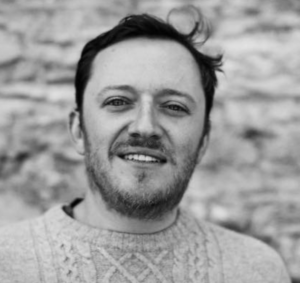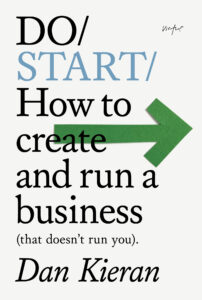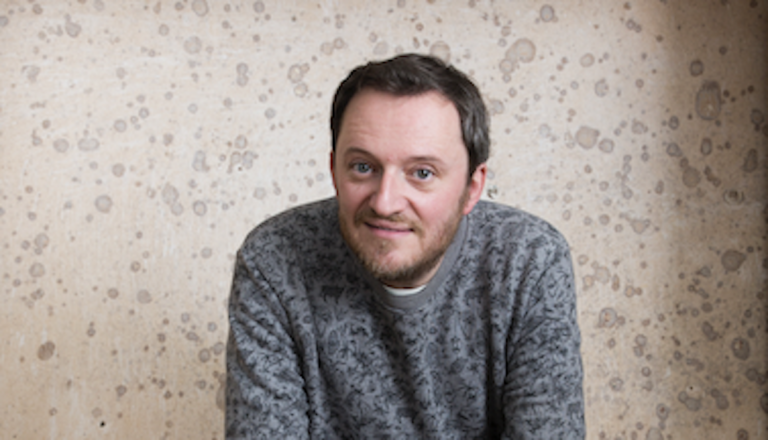When you become an entrepreneur you are embarking on two journeys. One to build and grow your business, and another to the edge of what you think you are capable of. All entrepreneurs are aware of and excited about the first journey, but very few are prepared, or even aware, of the second one. But it is this second journey that will define whether you succeed or not, because prioritising personal growth is how you keep ahead of the increasing demands your business will place on you. It also guarantees the only ‘exit’ you can count on in the end, which is the person you become as a result of your experience.
 So what can you expect on the second journey? Well, things will get messy from the outset. All the behaviours you least like about yourself will immediately be exposed to the light. Then you’ll discover power is a drug and – like drugs – it amplifies all your faults, which is a major problem if you are quick to lose your temper or struggle to have difficult conversations. You build your business in your own image, so expecting your staff to put up with your ‘foibles’ as the boss because ‘it’s just the way I am’ is not a practical option either. If you do not address the weaknesses in your character you will put them into your company and it – or you – will crumble. It’s just a question of which disintegrates first.
So what can you expect on the second journey? Well, things will get messy from the outset. All the behaviours you least like about yourself will immediately be exposed to the light. Then you’ll discover power is a drug and – like drugs – it amplifies all your faults, which is a major problem if you are quick to lose your temper or struggle to have difficult conversations. You build your business in your own image, so expecting your staff to put up with your ‘foibles’ as the boss because ‘it’s just the way I am’ is not a practical option either. If you do not address the weaknesses in your character you will put them into your company and it – or you – will crumble. It’s just a question of which disintegrates first.
Like everyone else, your flaws will depend on your individual life circumstances, but in my experience all entrepreneurs, despite the inevitable (and necessary) bravado we emanate, are needy and insecure. This is why we feel we have to ‘make a dent in the Universe’ in the words of the patron saint of tech entrepreneurs Steve Jobs – a famously difficult man. We don’t feel good enough in ourselves so we seek external validation – in the form of business success, fame and financial wealth – in the mistaken belief they will deliver us peace of mind. I don’t think I’ve ever met an entrepreneur (and I include myself in this) without a metaphorical neon sign above their head screaming ‘LOVE ME!’ Happily, this is why building a business is such a rewarding thing to take on, because it forces you to redefine yourself. And it is only once you and the business are freed from your personal neurosis and character flaws that it has a chance to be what you intended – a successful and useful company.
So how do you prepare yourself for the second journey and put up with the relentless exposure of your limitations? Through resilience. You have to be able to handle uncertainty, both in the business and yourself personally. How do you develop resilience? This is what worked for me.
Physical Health
First you need a body that won’t let you down, so you have to look after it by not putting it under unnecessary stress. I started running a few years after launching Unbound and quickly ditched the apps tracking my distances and times to focus on the benefits to my mental health instead. I didn’t listen to music either and pondered problems at work while I ran. A solution always came if I kept going long enough. Good health became a habit.
Give up booze or cut right down.
I know. Not a very enticing prospect if, like so many, alcohol is how you unwind and enjoy yourself. I didn’t give up booze deliberately, I stopped drinking when my wife became pregnant to share her teetotal pain, but I soon discovered not drinking gives you superpowers. I felt amazing every morning when I woke up. It makes sense when you think about it. Alcohol is a depressant, so reducing the amount of it you ingest is obviously a good thing. Not drinking also helps you sleep better, reduces bad moods and makes you more pleasant to be around.
Therapy
There’s no avoiding this one. All entrepreneurs end up doing it at some point, especially if you achieve any kind of success because the stakes become that much higher. And if you want to lead people then you have to understand the way you behave and react to things first. Therapy helps you find the source of your unhelpful behaviours so you can side-step them before they happen. This gives you more empathy, which makes you a better Executive, partner and boss because it means you develop a deeper understanding of the people around you. There are loads of different kinds you can try. It took me three attempts before I found the one that worked for me.
Nature
Nature is the original anti-depressant. Spending time in woods, walking in the hills or by the sea will nourish you. Self-care is not a luxury and no one is going to do it for you, so make sure you prioritise your own needs. If you set your team a positive example in this they will become more resilient too.
Accept it won’t last forever
Imagine not being in the business you created. This is because at the start you see little difference between yourself and your company, which is what pushes you to work such long hours and go to such lengths to make it a success. But the downside of this perspective is that it makes the prospect of your business failing an existential  threat to you personally, which can freeze you into making bad decisions and catastrophically impact your mental health. I often describe being an entrepreneur as going to a casino with your reputation, and it is this fear of public humiliation that explains why so many founders have breakdowns or feel major trauma if their companies fail. If you commit to it, the second journey will deliver the perspective you need to realise that you and your business are not the same thing, which will motivate you to pull yourself away from it emotionally. In my own case, after a decade at the helm I saw long before anyone else when it was time for me to leave. This meant I could plan a smooth transition out of the company.
threat to you personally, which can freeze you into making bad decisions and catastrophically impact your mental health. I often describe being an entrepreneur as going to a casino with your reputation, and it is this fear of public humiliation that explains why so many founders have breakdowns or feel major trauma if their companies fail. If you commit to it, the second journey will deliver the perspective you need to realise that you and your business are not the same thing, which will motivate you to pull yourself away from it emotionally. In my own case, after a decade at the helm I saw long before anyone else when it was time for me to leave. This meant I could plan a smooth transition out of the company.
So how does it feel when the journey comes to an end? What’s the view like when you reach the summit of the mountain of ‘success’? Anticlimactic and strange but also liberating. The feelings come thick and fast as you adjust to the loss of the labels you got used to having for so long. In my own case, the second journey that helped me reach my objective had an addendum. A friend recommended a book to me to help me come to terms with what happened after I left. In it I discovered Carl Jung’s theory of two adulthoods, which mirrored my own experiences to a startling degree. Jung says we all experience two adult lives. The first is where we head out into the world desperate to prove ourselves according to definitions of success and meaning we accepted when we are young. Then, usually after achieving a level of attainment or some kind of crisis in mid-life, we question and ultimately reject those achievements and definitions and decide for ourselves what those definitions should be as we enter our second and final one. That’s the view, and the quest, I’m contemplating now. It turns out the second journey goes on and on.
Do Start by Dan Kieran out 6th April RRP £9.99 (Do Book Co)

